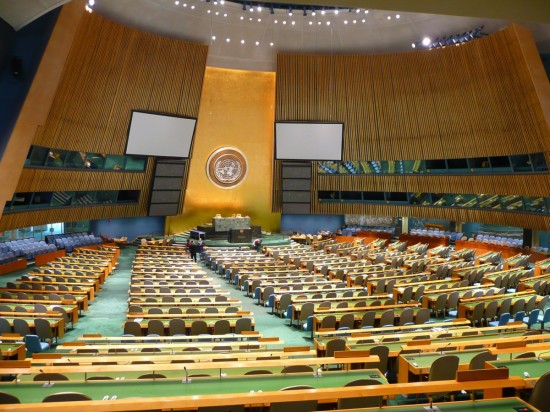The Second Substantive Session of the PrepComm for the General Assembly’s Special Session on Children.
— Madame Chair, Members of the Bureau, Honourable Delegates, NGO-colleagues. The NGO which I am representing here is a network of 70 sections called Defence for Children International (DCI) and was founded in 1979 – the International Year of the Child. During the years 1979 until 1989 DCI co-ordinated the input in the draft text of the UN Convention on the Rights of the Child. Being so connected with the history of the Convention gives us a specific outlook on the “PrepCom” and the draft outcome document of the planned Special session of the General Assembly.

While we recognise that it will be an historic occasion, so many world leaders gathering in a General Assembly Special session on Children, and while we recognise that this is an attempt to put children higher on the international political agenda, we like to point out certain risks:
If the outcome document is not fully building on the Convention and reaffirms the Convention and new international standards, many will see the gathering of world leaders as a step back. Therefore we hope you will in the outcome document reaffirm the Convention and build on the two Optional protocols and the ILO Convention on the Elimination of Extreme Forms of Child Labour, the Education or All Declaration and the UN Standard Minimum Rules on the Administration of Juvenile Justice.
We demand from Governments to reaffirm all the commitments, previously made to the provisions of the Convention and the previous targets of the World-Summit Declaration, while adding new goals.
Reaffirmation of funding commitments by the developed countries is also essential. Madame Chair. A famous psychoanalyst, Bruno Bettelheim, wrote a book in the fifties “love is not enough”. Paraphrasing on the title, we’d like to say: ratifications are not enough.
Reservations of States to some articles of the Convention should be withdrawn.
Many countries made financial cutbacks pressed by International Financial Institutions. We need UNICEF to report on this as well. We have to admit the targets of the Plan of Action of the World Summit for Children could not be reached, because the conditions imposed by the International Financial Institutions. On the other hand, these countries were often hit by donor fatigue, as well and because of economic reforms they had to change the policies.
From our DCI-perspective, there are still areas neglected such as Juvenile Justice Systems. Many countries have not appropriate juvenile justice systems. This needs to be implemented in many States, with quality legal representation introduced.
Oral Statement by Dr. Philip Veerman, President of the Defence for Children International (DCI) at the United Nations.
(New York, January 29, 2001)

 Follow
Follow




